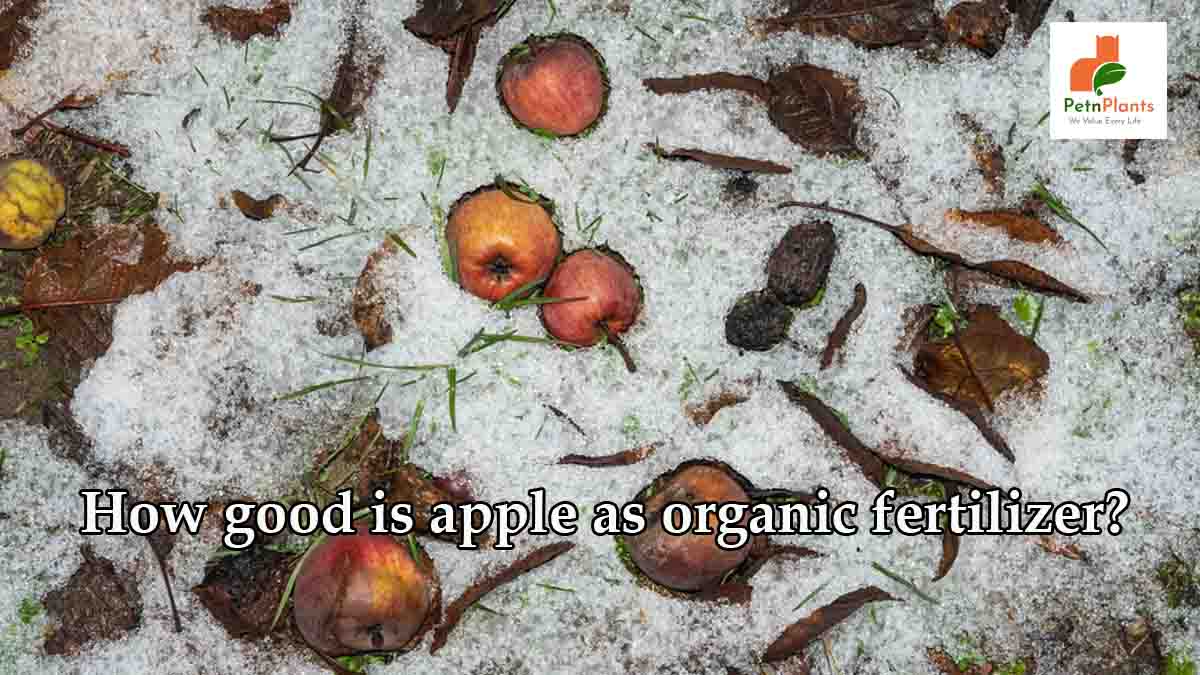Latest
Pets
Plants
How Indoor Plants Can Affect Pet Behavior, Stress & HealthJanuary 12, 2026
We Value Every Life

Apple is one of the most popular fruits in the world. Not only is it delicious, but it is also healthy for you. You may not know that apple is also good for your garden. Apple can be used as organic fertilizer for your plants. It adds essential nutrients to the soil that helps your plants grow strong and healthy. However, you have to be careful not to overdo it. Too many apples can harm your plants. This blog post will discuss how to use apples as organic fertilizer for your plants. We will also review the benefits and risks of using apples in your garden.
Organic apple fertilizer is made from the leftover pulp and skin of apples that have been juiced or processed. The apple seeds and stem are removed before the pulp and skin are dried and ground into a powder.
Apple powder contains nitrogen, phosphorus, potassium, and other minerals that can benefit plants. It is a slow-release fertilizer that can be applied to the soil before planting or around established plants. Apple powder can also be mixed with water to make a liquid fertilizer.
There are many nutrients that apple contains, which make them a great organic fertilizer. These nutrients include nitrogen, phosphorus, potassium, calcium, magnesium, and sulfur. All of these are essential for healthy plant growth.
Apple also contains trace amounts of other minerals beneficial for plants, such as iron, manganese, copper, zinc, and boron. Although these minerals are very small, they can still play an important role in plant nutrition.
Overall, organic apple fertilizer is an excellent source of plant nutrients and can help promote healthy growth.
Apple can be used as an organic fertilizer in several ways. One is to simply bury apple cores or peelings around the base of plants. As the apple decomposes, it releases nutrients into the soil that will benefit the plants. Another way to use apples as organic fertilizer is to make compost tea. To do this, put apple scraps into a bucket of water and let them decompose for a few weeks. Then, strain out the solids and use the resulting liquid to water your plants. The nutrients from the apples will help to promote plant growth.
When it comes to organic fertilizer, there are a lot of options available. But one option that might not be as well known is using apples as organic fertilizer. Here, we’ll look at the pros and cons of using apples as organic fertilizer so you can make an informed decision about whether or not it’s right for your garden.
The biggest pro of using apples as organic fertilizer is that it’s a great source of nutrients for your plants. Apple contains many important nutrients like nitrogen, potassium, and phosphorus, which are all essential for plant growth. Additionally, apple contains trace minerals like iron and magnesium, which can benefit your plants.
Another pro of using apples as organic fertilizer is that it’s relatively inexpensive. Compared to other organic fertilizers on the market, apple is usually one of the more affordable options. This makes it a great choice if you’re on a budget.
However, there are also some downsides to using apples as organic fertilizer. One downside is that it can attract pests. Because apples contain sugars, they can attract pests like fruit flies and ants. So if you choose to use apples as organic fertilizer, keep an eye out for these pests and take steps to keep them away from your plants.
Additionally, because apples are acidic, they can lower the pH of your soil over time. This can make it difficult for some plants to grow in your garden. If you’re concerned about this
Apple is a great organic fertilizer for plants. It provides nutrients that help plants grow and helps to improve the quality of the soil. Apple also helps to retain moisture in the soil, which is important for plant growth.
0